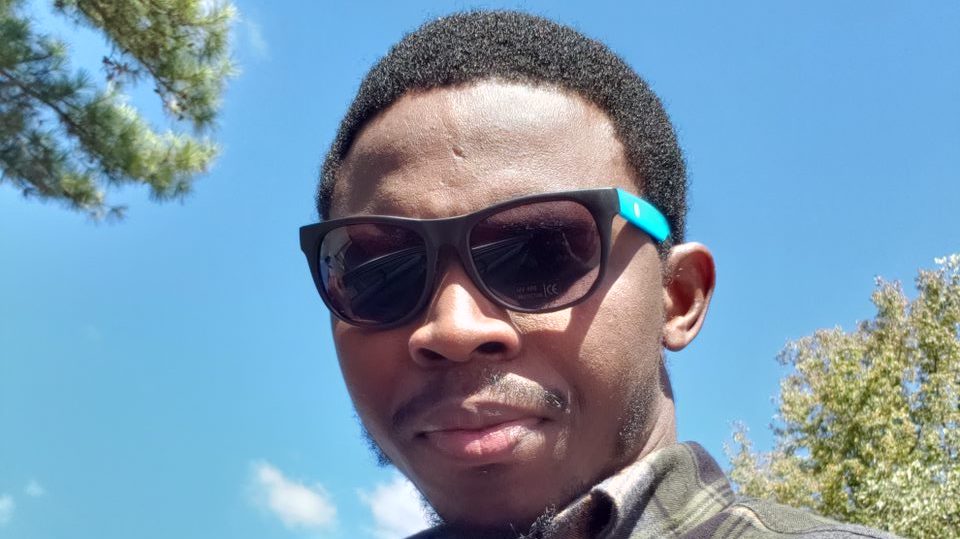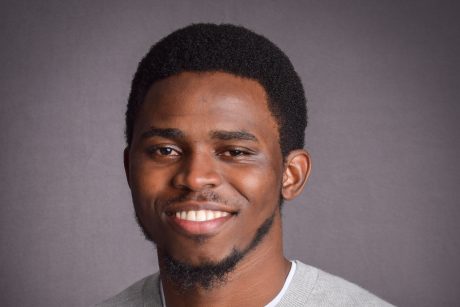Researcher Spotlight – Olakunle Sodiya

2021-22 Global Change Fellow
PhD student, Department of Forestry and Environmental Resources
Advisor: Dr. Justin Baker
Every year the Southeast Climate Adaptation Science Center funds a multi-disciplinary cohort of Global Change Fellows representing colleges across NC State University. The current cohort of students represents the decadal anniversary of this program! Here are some highlights about 2021-22 Fellow, Olakunle Sodiya and the applied research he’s conducting.
About You
What do you study?
I study the impact of climate change on forest ecosystems and the forest sector. My research focuses on modeling how climate change, socioeconomic, and climate-oriented land use policy changes could impact forest resource utilization, investment, and market outcomes in the United States. Currently, I am concerned about how different climate mitigation incentives will change harvest patterns, forest planting, and management interventions in the Southeastern US. Hence, developing forward-looking resource assessments that combine spatial-empirical techniques with modeling can help us understand forest product markets, resources utilization trends, and evaluate policy design choices to improve sustainability outcomes.
What (or who) influenced you to go into this field of study?
My experience working with the Cross River National Park, Ogun State Forestry Plantation Project in Area J4, and the Forest Research Institute of Nigeria (FRIN) as an Intern, inspired my desire to acquire advanced knowledge about forestry and forest ecosystems.
What are three words your friends would use to describe you?
Resourceful, gregarious, and collaborative.
About Your Research

What results are you finding?
The impact of climate change on forest ecosystems remains uncertain. There is a growing need to understand how climate change will affect ecosystems and economic production capacity in natural resource-intensive systems. My research will provide an answer to the question of whether forest sector climate mitigation in the South will result in local changes in wood supply costs or changes in forest product output at a mill level. In addition, it will help understand the impacts of climate investments on lower-income or marginalized populations in the region.
How can your research be used to inform management decisions?
My research will provide guidance to stakeholders in making smart, informed adaptation decisions. Specifically, it will provide forest managers, landowners, and forest product manufacturers with models that would help predict how climate mitigation incentives and emerging climate threats could impact forest resources management. Also, continued efforts to understand how climate change will interact with socioeconomic and environmental demands for forest and land resources can inform mitigation and land use policy design and adaptation planning.
Who will benefit from your research?
The net effects of changing climate conditions on forest ecosystems and forest sector include both market and forest management implications. Thus, forest managers, landowners, and forest product manufacturers concerned with the sustainable management of forest resources and products will benefit from my research.
About Your Global Change Fellow Experience
How do you expect the SE CASC Global Change Fellows Program to impact you and your work?
The SE CASC Global Change Fellows program has provided me with valuable information and tools about climate change impact and science communication that will always be relevant to conducting and communicating my research to both a scientific and non-scientific audience. The trainings (such as co-production and decision science amongst others), seminars, collaborations, and opportunities have equipped and influenced my approach to the design of science, and how it can be effectively communicated to produce actionable results.
What has been the most rewarding part of being a Global Change Fellow?
It is the rare privilege of connecting and collaborating with such an incredibly talented cohort of Global Change Fellows from different fields of study. I have established relationships that will be helpful going forward in my career. In addition, our mentors are simply amazing. The readiness of Aranzazu Lascurain and Cari Furiness to help and connect Global Change Fellows with resources and opportunities relevant to our research has made learning enjoyable.
What advice would you give to an incoming Global Change Fellow to get the most out of their experience?
Be actively involved, be available, take advantage of every opportunity to learn, unlearn and relearn, collaborate, get to know other fellows, volunteer, and have fun.
